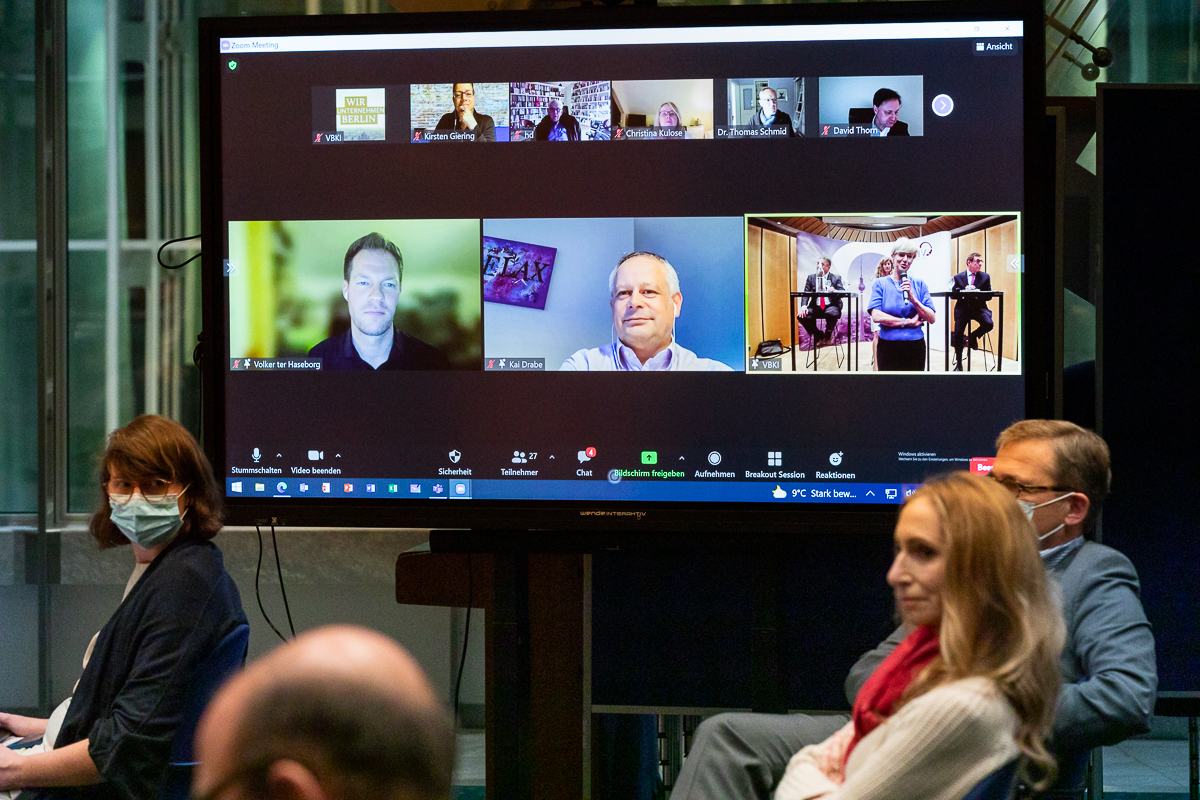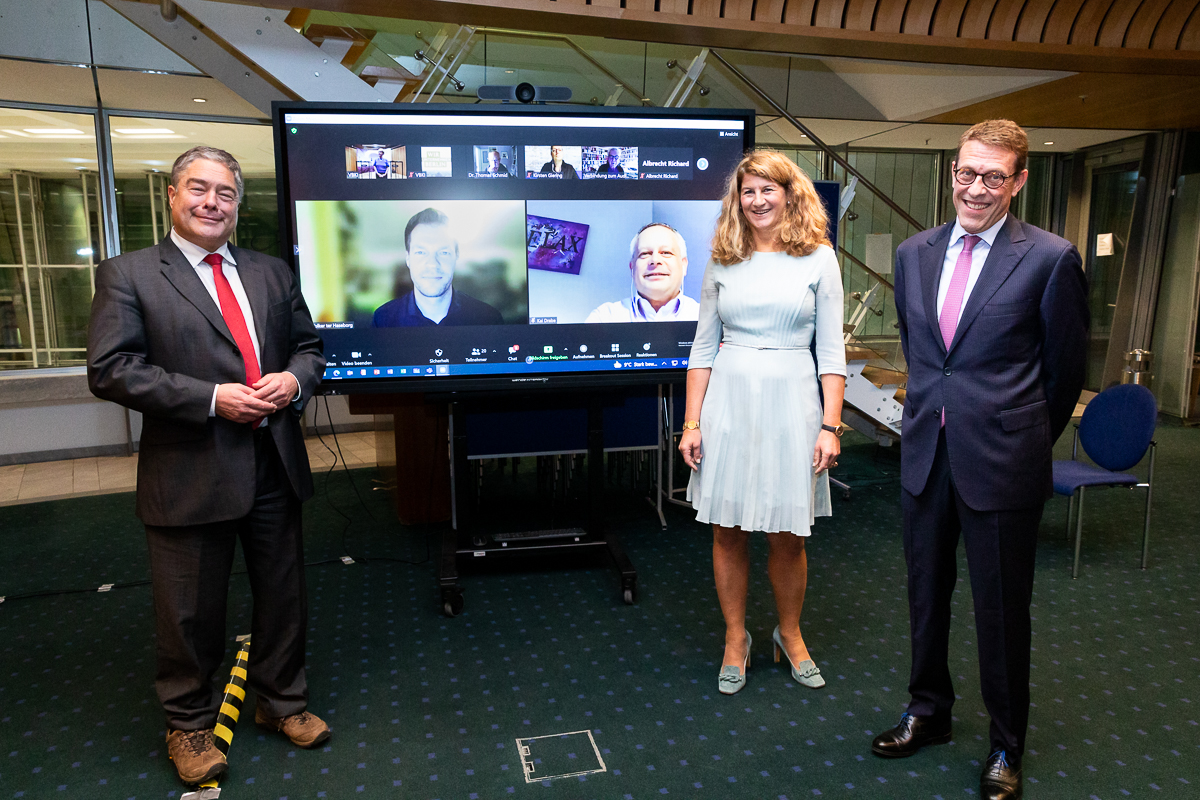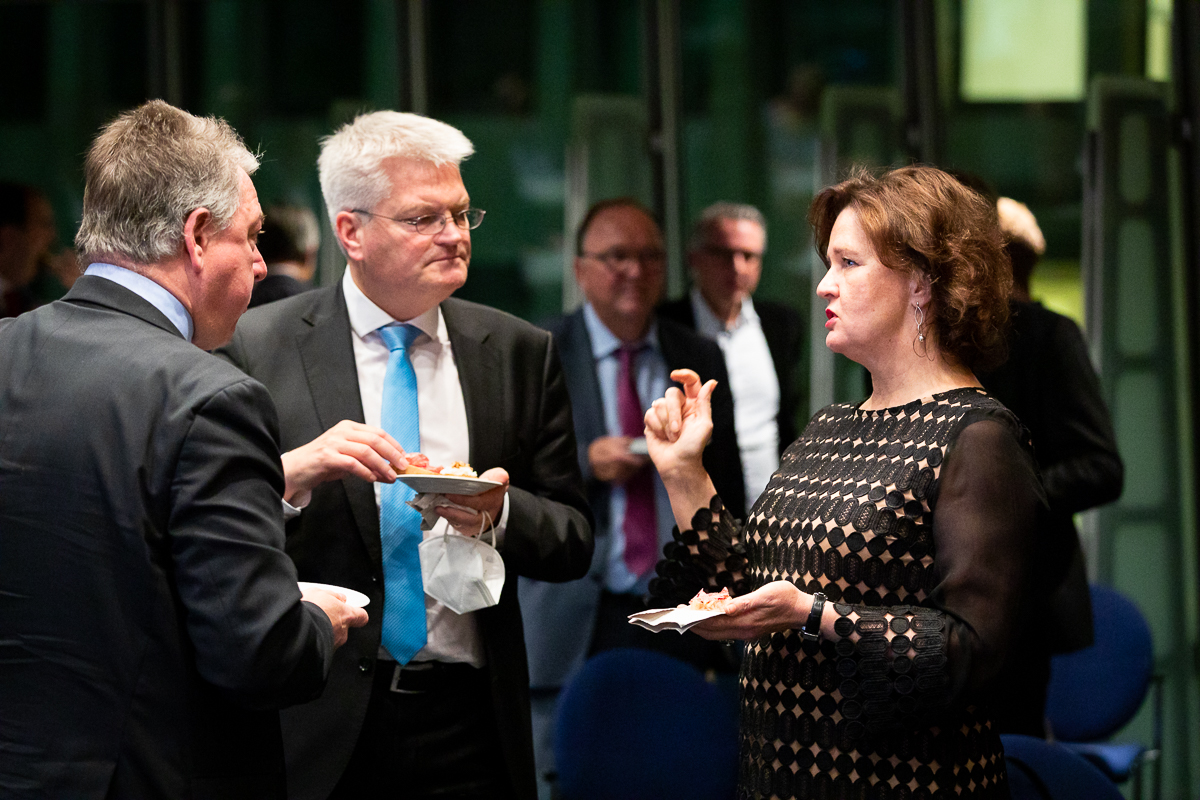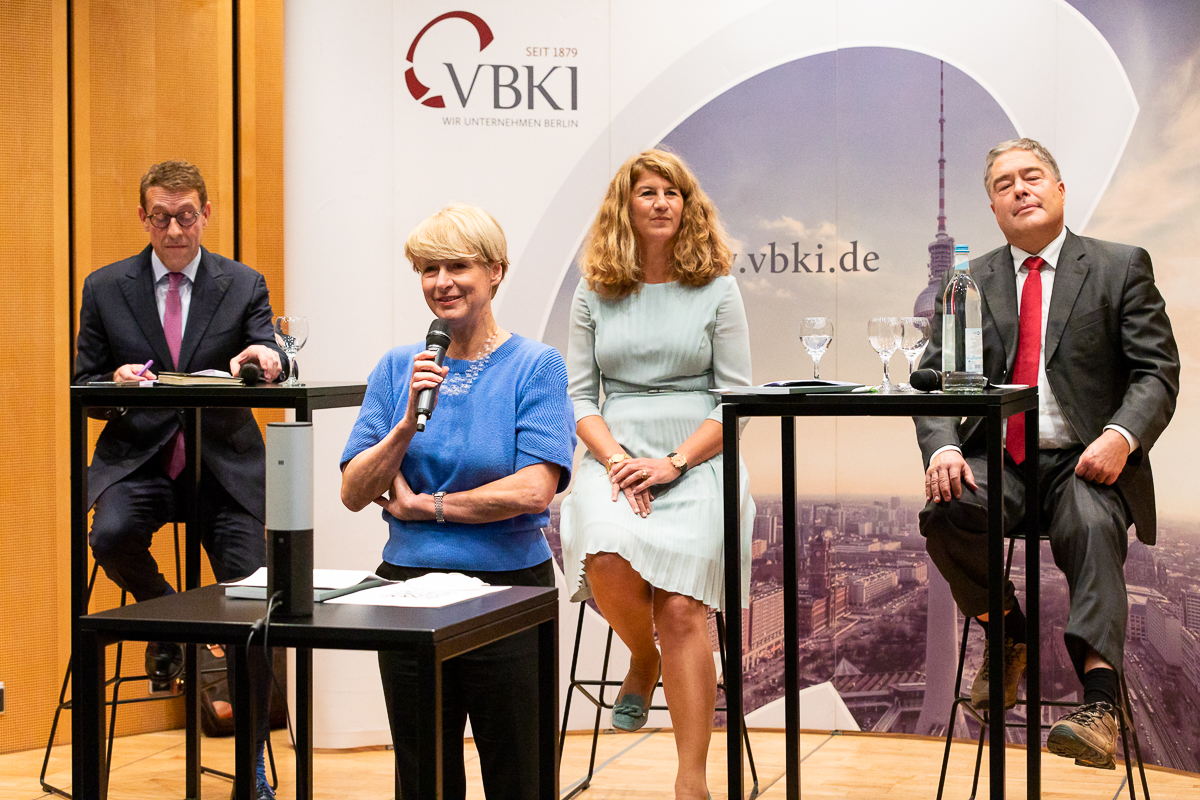Loss of control
Hybrid VBKI panel on the Wirecard scandal: isolated case or flaw in the system?
The Wirecard case is probably the most spectacular fraud case in German economic history. What lessons does the scandal hold for the German governance system? One panel, numerous revealing answers.
1.9 billion euros gone, 20 billion euros in stock market value destroyed, an ex-CEO in hiding, the former CEO in custody - how was it possible for the celebrated DAX star to fall so far? In Germany, in the year 2020?
At a hybrid event at the VBKI, a high-caliber panel moderated by VBKI Executive Committee member Stephanie Bschorr and Kai Drabe, Chairman of the Finance & Sustainability Committee, discussed this issue. The panel began with Volker ter Haseborg, award-winning journalist for Wirtschaftswoche, whose research - set out in the book "The Wirecard Story" - had made a significant contribution to uncovering the criminal machinations. Connected from Hamburg, he shared his intimate insights into the fraud case. Tenor: The alarm bells had rung early on, but hardly anyone had wanted to interpret the signals correctly. There had already been clear signs of dishonest behavior by the company in 2008. However, Wirecard had repeatedly succeeded in accusing critics of unfair motives and putting them under pressure.
Berlin-based specialist lawyer for banking and capital law Wolfgang Schirp is representing 3,000 Wirecard victims in a lawsuit against the auditors at EY, who have been auditing the former fintech star since 2008. The plaintiffs are accusing the auditors of "intentional immoral conduct", and the publication of the so-called Wambach Court, which was kept under lock and key for a long time, shortly after the VBKI event has increased the chances of success of such proceedings.
If the plaintiffs are able to enforce their claims against EY, there is a threat of claims for damages of an almost incalculable amount. What do these liability risks mean for the auditing industry as a whole? The subsequent discussion revolved around the question of how to reduce the dependencies between auditors who take on assignments and companies that commission them - "the hand that feeds must not be the hand that has to be bitten in case of doubt", Wolfgang Schirp summarized one of the possible lessons to be learned from the Wirecard case.
The establishment of a central counterparty (CCP) between the two parties, which collects the corresponding fees in advance and then issues the mandate itself, was discussed. Schirp named Deutsche Börse AG as a possible candidate. A faster rotation of auditors was also considered; EY has audited Wirecard continuously since 2008. Other proposals included awarding the mandates by lot or strengthening the dual control principle by means of a joint audit.
The political handling of the scandal was viewed critically. Christoph Regierer, in particular, was irritated by the haste with which the Minister of Finance in particular had initiated legislative changes. The Managing Partner of the auditors at Mazars Germany argued that increasing the upper liability limits would further consolidate the existing oligopoly in the industry. Only the so-called Big Four could afford to bear the growing risks. However, this is the opposite of what is desirable: Not less, but more competition among auditors is needed.
The panel agreed on the enormous reputational damage suffered by Germany as a financial center in the wake of the fraud case. The German governance system as a whole is under scrutiny - the Wirecard case will be with us for a long time to come.
Impressions
To the picture gallery: Please click here>




You might also be interested in
From Generative AI to Agentic AI
VBKI visits Microsoft Experience Center Munich
Face Your Fear
Art as confrontation: Before the Gallery Weekend, the VBKI met Noah Becker's bold visual worlds.
"HR must lose its fear of numbers"
Strategic thinking in focus at the first CHRO event organized by CEOs for Berlin









